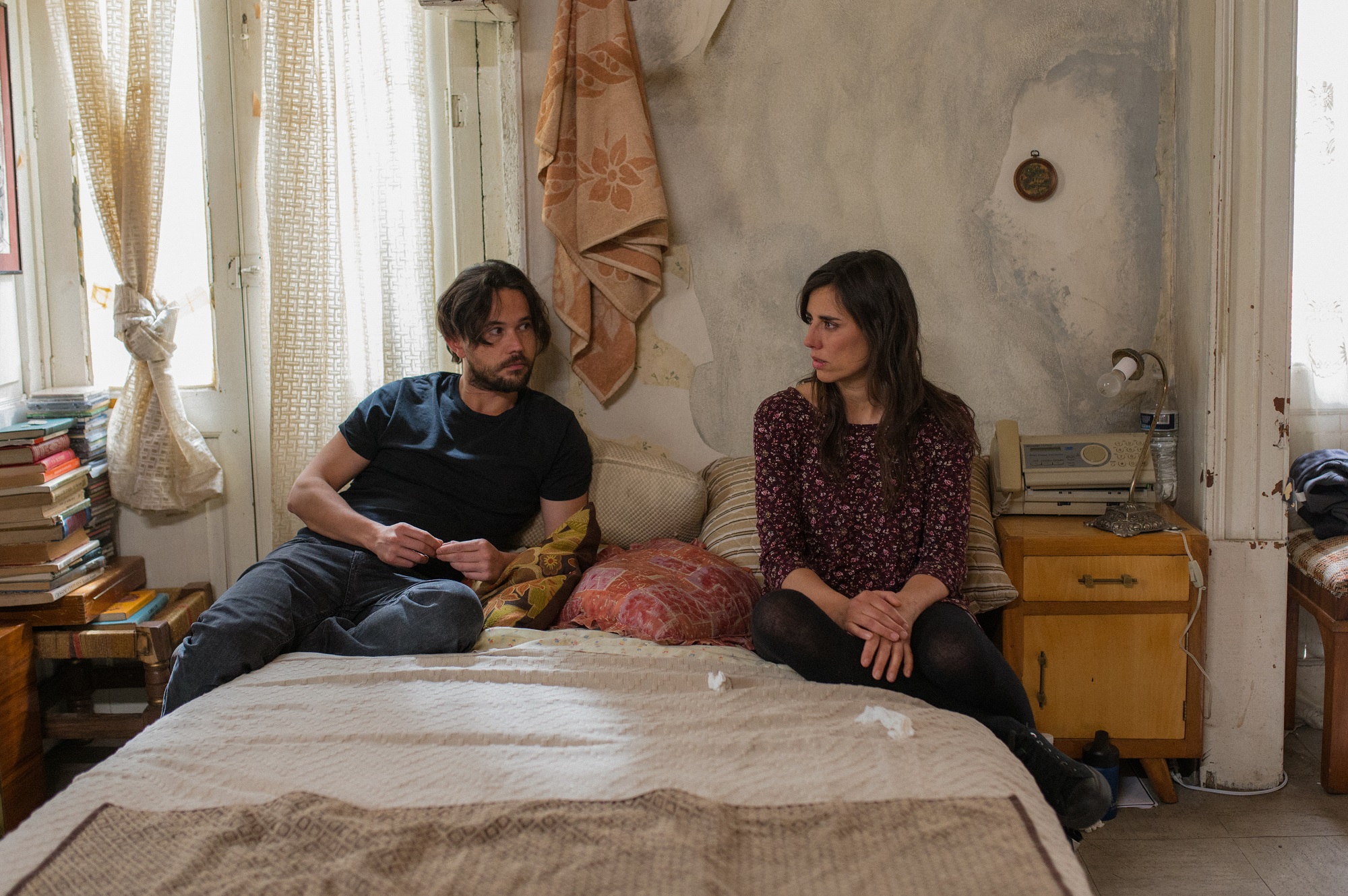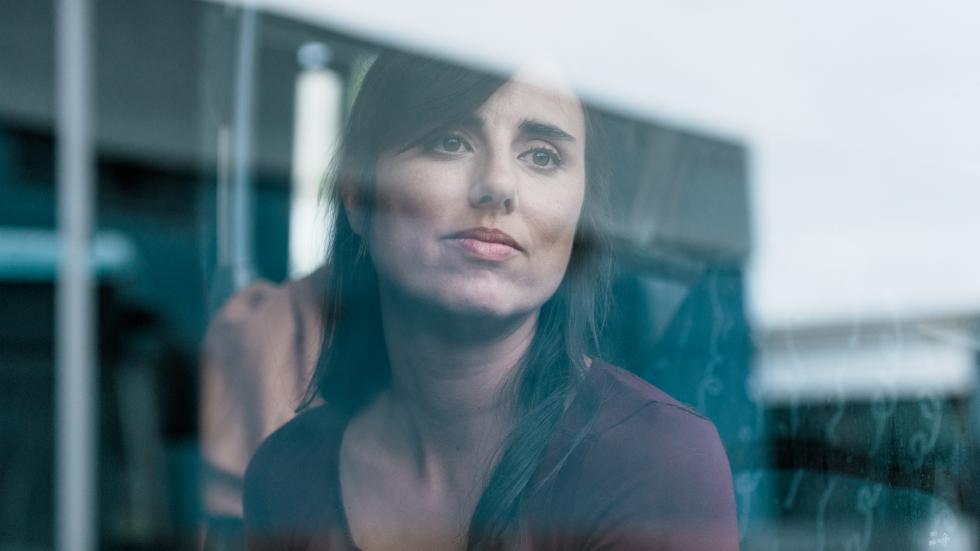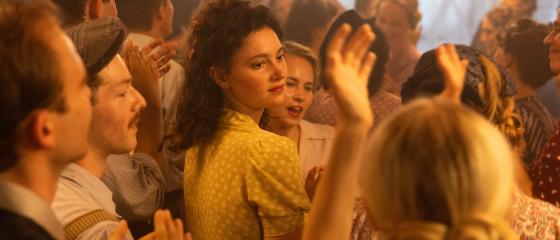On screen, Lili the character is going through a moment of crisis, with her partner, with her life, with her past. The Lili character directs films, and decides to carry out a cathartic audiovisual project: she will track down and interview three of her exes, her most important romantic relationships ever, with the aim of answering the eternal question that hangs over every break-up: ¿Qué hicimos mal (what did we do wrong)? One of the visits will take her to Mexico, a country where she lived for seven years and with which she maintains an emotional bond. The Lili character coincides in all this with Liliana Torres (Barcelona, 1980), the director and star of ¿Qué hicimos mal?, a gem in the Official Section of the Seville Festival.
In her second feature-length fiction film after Family Tour (2013), and although the word fiction is not strictly in line with what Liliana Torres has done on both occasions, the filmmaker tackles something that could be labelled as self-fiction, or documentary-fiction. Or... "If I have to choose between these two terms, I think the one that fits best is self-fiction," Torres explains. "It is a story that is based on real people in my life, and on me, that contains real situations, like the interviews, but that also has many fictional parts, like in the life of the couple, or in the way the sequences are arranged, and even in the journey of the protagonist herself".
The Lili filmmaker who arrives in Seville with ¿Qué hicimos mal?, the Lili actress who appears in the film, the Lili character we see on screen. Again, using the words characters and actress in this case is not strictly in line with reality. This is how Torres explains it: "My work has not been properly 'acting'. Or so I think. What I have done is to play myself in the situations of the script. Relive. I haven't used any training or acting technique because I don't know them and because I wanted the honesty and the reliving experience to be what filled the character. This required the actors and actresses in the film to make an effort to come into my ground by leaving aside technique and playing the truth with me".
How does it feel to be Lili in front of and behind the camera?
It has not been an easy experience. I can't say that I've lived it at ease, I could even say that I only started to enjoy it towards the end of the shoot. Acting and directing are connected during the creation of the scenes on the set and in rehearsals, but the raw material that the director puts in is very different from the raw material that the actress puts in. In the director's position the final goal and perception always remain clear, sometimes difficult and even impossible, but focused. In the case of the actress, or of me acting myself, to be more precise, when I relived the emotion, only if I let myself go did I reach the degree of honesty that I wanted (as a director) for the film, but that implied losing clarity and global perception for the duration of the scene. That back and forth exercise was very physically and emotionally draining for me. And I also felt very vulnerable during the filming because somehow I had to take off and put on my 'armour' during those transitions and that's when I felt naked.
What are the challenges a creator has to face when it comes to this particular mix of reality and fiction?
I suppose that the special challenges of auto-fiction lie in the optic through which the story is approached. You have to be distant; in the sense that the story has to have matured in your own life story, in the sense that the story has to have matured in your life story, and I would dare say, also to bring it to closure, or at least to a close. Moreover, it has to be an optic that allows you to know when a real event is important for the narrative beyond the particular importance in the life of the creator. In short, to have a certain biographical perspective.

Still from What did we do wrong? by Liliana Torres
What was the starting point of the project, what did you want to tell?
I wanted to talk about this phenomenon of planned obsolescence in couples among our generation. How it has become more common to have several, or many, partners throughout one's life instead of just one or two. I am referring to sentimental couples where there is a clear intimate depth; where in most cases they live together, 'feel' like a family (with or without children) or generate a social network around them, to mention just a few characteristics. It seemed to me that this phenomenon had to do with the obvious social changes in reference to gender, but that behind these obvious social changes there are also other more personal changes that have significantly influenced this transformation of the paradigm; the main one for me, the more generalised possibility that women have nowadays to enter into a deeper contact with their 'existential being' or their 'existential needs'. And this changes everything with regard to the couple and our role in it.
The film shows the importance of your years in Mexico.
It would be very difficult for me to list all the things that my years in Mexico have given me. Seven years of living there and many visits and friends have given me many experiences that have enriched me. I have very good memories of Mexico and I treasure them with great affection. It is the country where I officially started working in film, where I directed my first works, the country where I had my first flat on my own, the country of wonderful trips and fantastic friends. I met many wonderful people, some of whom are still part of my life. In fact, friends of mine appear playing themselves in the film.
In your previous Family Tour you also mixed your own reality with fiction. There, your family went in front of the camera to play themselves. But it was the actress Núria Gago who gave life to Lili.
In Family Tour I didn't think of putting myself in front of the camera for several reasons; the first and most important is that the main character feels like an alien in her family, and I wanted that to be something that was constantly palpable in the film, that she was even the person in the family who least resembled the family. That's why choosing an actress to play Lili seemed the most appropriate, an actress who was a natural, but not from my family. An insider, in short. And of course, the fact that it was my first film also had a lot to do with this decision, it was much riskier for me to be in front of the camera, but it wasn't the most important variable in this decision.
What are you expecting and what do you think of this spotlight, this festival, to begin the film's journey?
I'm very happy to be premiering the film at the Seville Festival. It is an honour for me to share the official section with names of filmmakers I admire and I think the festival is very well positioned in Spain and increasingly on the European scene. I also think that the line-up is very well put together and has a strong identity. But it's also a special place for me because the first prize we won with Family Tour was at the Crossing Borders festival and the director of the Seville Festival, José Luis Cienfuegos, was part of the jury in that edition, so we met under those circumstances and this memory is very present in my mind, of course! Our first prize.







